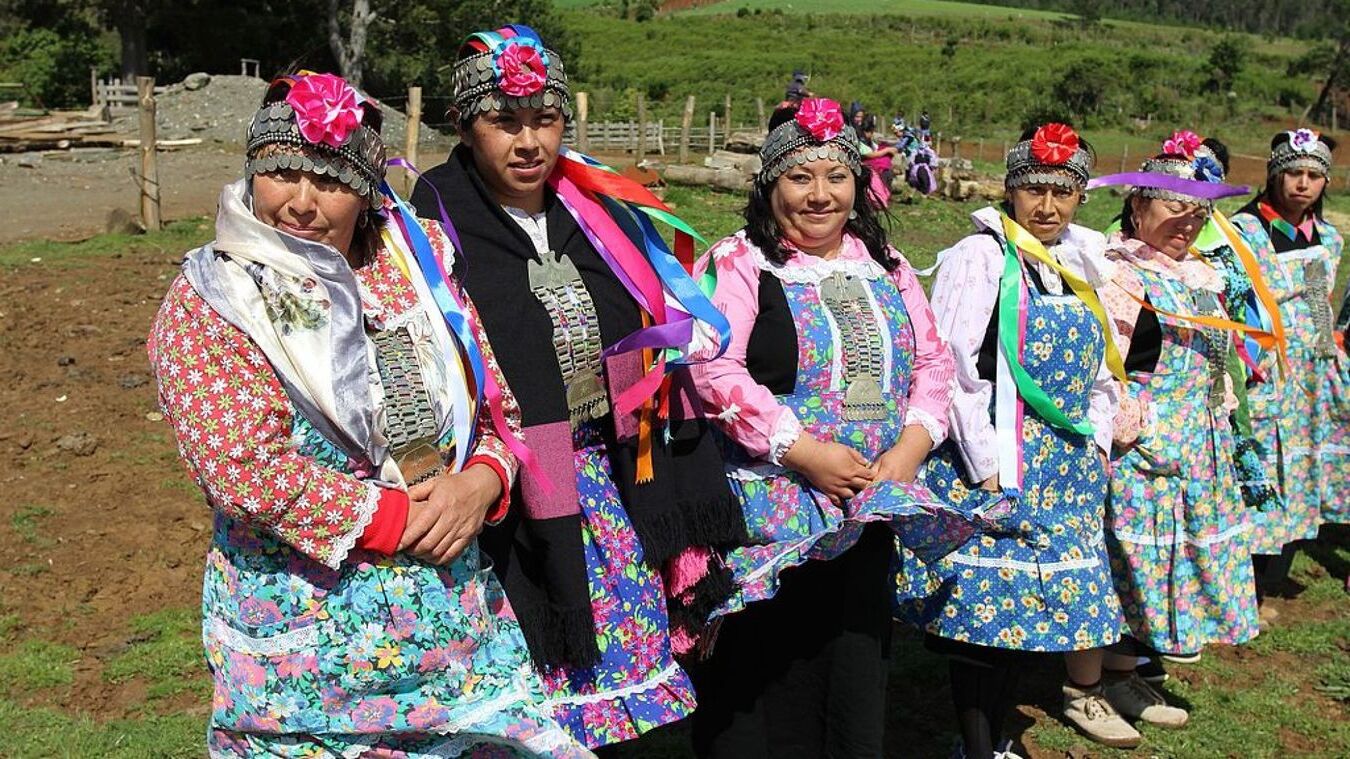
The Mapuche religion is a rich tapestry of beliefs, rituals, and traditions that have shaped the lives of the Mapuche people for centuries. Rooted deeply in nature and the cosmos, their spiritual practices offer a unique glimpse into a world where every element has meaning and purpose. From the revered Machi (shamans) to the sacred Nguillatun ceremonies, the Mapuche faith is a testament to their resilience and connection to the earth. This article will delve into 30 intriguing facts about the Mapuche religion, shedding light on their gods, rituals, and the profound respect they hold for the natural world. Get ready to explore the spiritual heart of the Mapuche people!
Origins of Mapuche Religion
The Mapuche people, indigenous to Chile and Argentina, have a rich spiritual tradition deeply connected to nature and their ancestral lands. Their beliefs and practices offer a fascinating glimpse into their worldview.
- The Mapuche religion is known as Mapuche cosmovision, emphasizing harmony with nature and the universe.
- Pillan is the supreme deity in Mapuche mythology, representing the forces of nature like thunder and volcanoes.
- Ngenechen is another central deity, often considered the creator god and protector of the Mapuche people.
- The Mapuche believe in spirits called Ngen, who inhabit natural elements like rivers, mountains, and forests.
- Machis are the spiritual leaders and healers in Mapuche communities, often women, who perform rituals and communicate with spirits.
Rituals and Ceremonies
Rituals play a crucial role in Mapuche religion, serving as a bridge between the physical and spiritual worlds. These ceremonies are rich in symbolism and tradition.
- The Nguillatun is the most important Mapuche ceremony, held to ensure community well-being and harmony with nature.
- During Nguillatun, participants offer sacrifices like animals and food to the gods and spirits.
- The Machi leads the Nguillatun, performing dances, chants, and prayers to invoke spiritual blessings.
- We Tripantu is the Mapuche New Year, celebrated during the winter solstice to mark the renewal of life and nature.
- Llellipun is a daily prayer ritual performed by families to seek protection and guidance from the spirits.
Symbols and Beliefs
Mapuche religion is rich in symbols and beliefs that reflect their deep connection to the natural world and their ancestors.
- The Kultrun is a sacred drum used by Machis during rituals, symbolizing the universe.
- Rewe is a ceremonial wooden pillar representing the connection between the earthly and spiritual realms.
- Wenu Mapu is the Mapuche concept of the celestial world, home to the gods and spirits.
- The Mapu is the earthly realm, where humans and nature coexist.
- Am is the underworld in Mapuche belief, inhabited by spirits of the dead and other supernatural beings.
Healing and Medicine
Healing practices are integral to Mapuche religion, blending spiritual and natural remedies to treat physical and spiritual ailments.
- Machis use herbal medicine derived from native plants to heal various illnesses.
- Spiritual healing involves rituals and prayers to expel negative energies and restore balance.
- Dream interpretation is a common practice, with Machis analyzing dreams to diagnose and treat ailments.
- Purification rituals often include the use of water and smoke to cleanse individuals and spaces of negative influences.
- Animal symbolism is prevalent, with certain animals believed to possess healing powers and spiritual significance.
The Role of Ancestors
Ancestors hold a revered place in Mapuche religion, believed to guide and protect their descendants from the spiritual realm.
- Ancestral spirits are honored through rituals and offerings to maintain their favor and protection.
- Epeu are stories and legends passed down through generations, preserving the wisdom and teachings of ancestors.
- Toki is a title given to a respected elder or leader, often seen as a link between the community and their ancestors.
- Ancestral lands are considered sacred, with a strong emphasis on preserving and respecting these territories.
- Genealogy is important, with detailed family histories maintained to honor and remember ancestors.
Modern Influences and Adaptations
While traditional beliefs remain strong, Mapuche religion has also adapted to modern influences and challenges.
- Syncretism has occurred, blending Mapuche beliefs with elements of Christianity introduced by European colonizers.
- Cultural revival movements have emerged, aiming to preserve and promote traditional Mapuche practices and knowledge.
- Environmental activism is often driven by spiritual beliefs, with many Mapuche advocating for the protection of their ancestral lands.
- Education initiatives focus on teaching younger generations about their cultural and spiritual heritage.
- Interfaith dialogue has increased, fostering mutual respect and understanding between Mapuche and other religious communities.
The Heart of Mapuche Beliefs
Mapuche religion offers a rich tapestry of traditions and beliefs that reflect their deep connection to nature and spirituality. Their cosmology emphasizes balance between the physical and spiritual worlds, with Ngen spirits playing a crucial role. Rituals like the Nguillatun ceremony highlight their communal and spiritual life, fostering unity and respect for the environment.
Understanding these aspects provides insight into the Mapuche's resilience and cultural identity. Their spiritual practices are not just rituals but a way of life, deeply intertwined with their daily activities and worldview. This connection to their ancestral roots continues to guide them, preserving their heritage in the face of modern challenges.
By appreciating the Mapuche's spiritual landscape, we gain a greater respect for their culture and the universal quest for meaning and harmony in life.
Was this page helpful?
Our commitment to delivering trustworthy and engaging content is at the heart of what we do. Each fact on our site is contributed by real users like you, bringing a wealth of diverse insights and information. To ensure the highest standards of accuracy and reliability, our dedicated editors meticulously review each submission. This process guarantees that the facts we share are not only fascinating but also credible. Trust in our commitment to quality and authenticity as you explore and learn with us.


